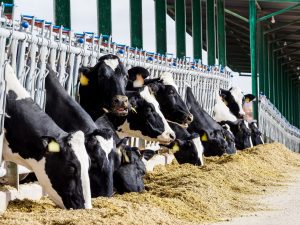Northwest Iowa — The first shotgun deer season opens this Saturday in Iowa and the Iowa Department of Natural Resources is again asking hunters for samples to test for Chronic Wasting Disease.
CWD was first confirmed in wild deer in Allamakee County in 2013 and has since been found in Clayton, Dubuque, and Wayne counties — with a recent test in Woodbury County that is believed to be positive. The DNR’s Tyler Harmssays they want samples from around the state and also have some targeted areas.
He says they also take some more samples in counties that border states with CWD including those in northeast Iowa that border Wisconsin.
Harms is a biometrician who studies the numbers and trends that impact the deer population. He says testing tissue samples during the deer season is just one way they try to keep track of CWD.
CWD is always fatal to deer — but Harms says the slow development means there’s not an instant impact on deer numbers.
He says Iowa’s CWD concerns in the live deer population to this point haven’t raised any major alarms.
Harms says hunters have done a good job of helping provide samples.
He says hunters understand it’s a combined effort.
The Iowa DNR has a new on-line system where hunters who provide samples for chronic wasting disease testing can check on the test results themselves. Go to www.iowadnr.gov/hunting and click on the CWD reporting system link on the right. You can enter either your hunter identification number or the nine-digit registration number on the deer tag. Results should be available in two to three weeks. Hunters who are awaiting the testing results are encouraged to keep that deer separate from others and hold off on processing in the event that it tests positive.
The Centers for Disease Control and Prevention — or CDC — says that to date, there is no strong evidence for the occurrence of CWD in people, and it is not known if people can get infected with CWD. However, they also say, “If your animal tests positive for CWD, do not eat meat from that animal.”











